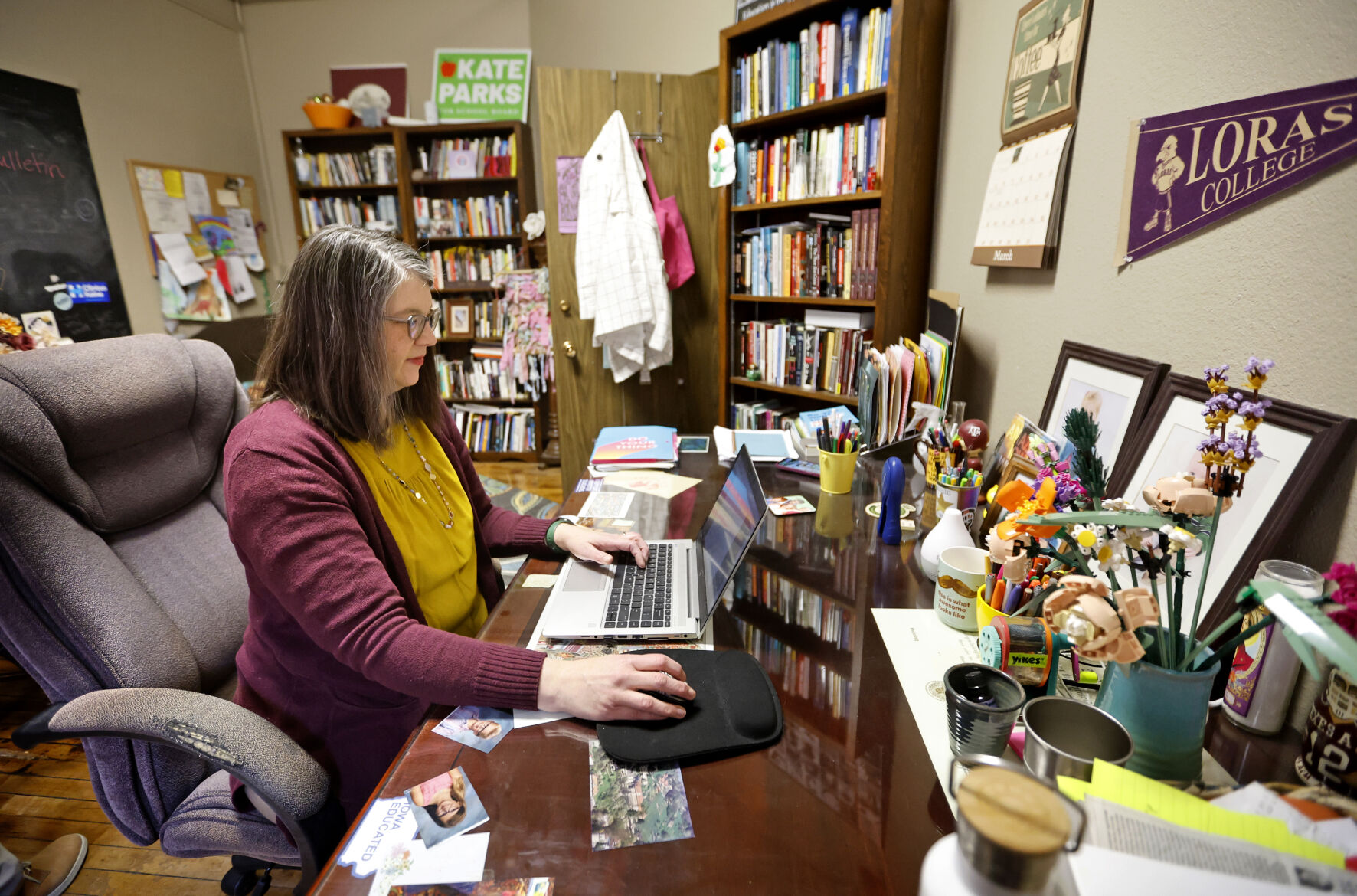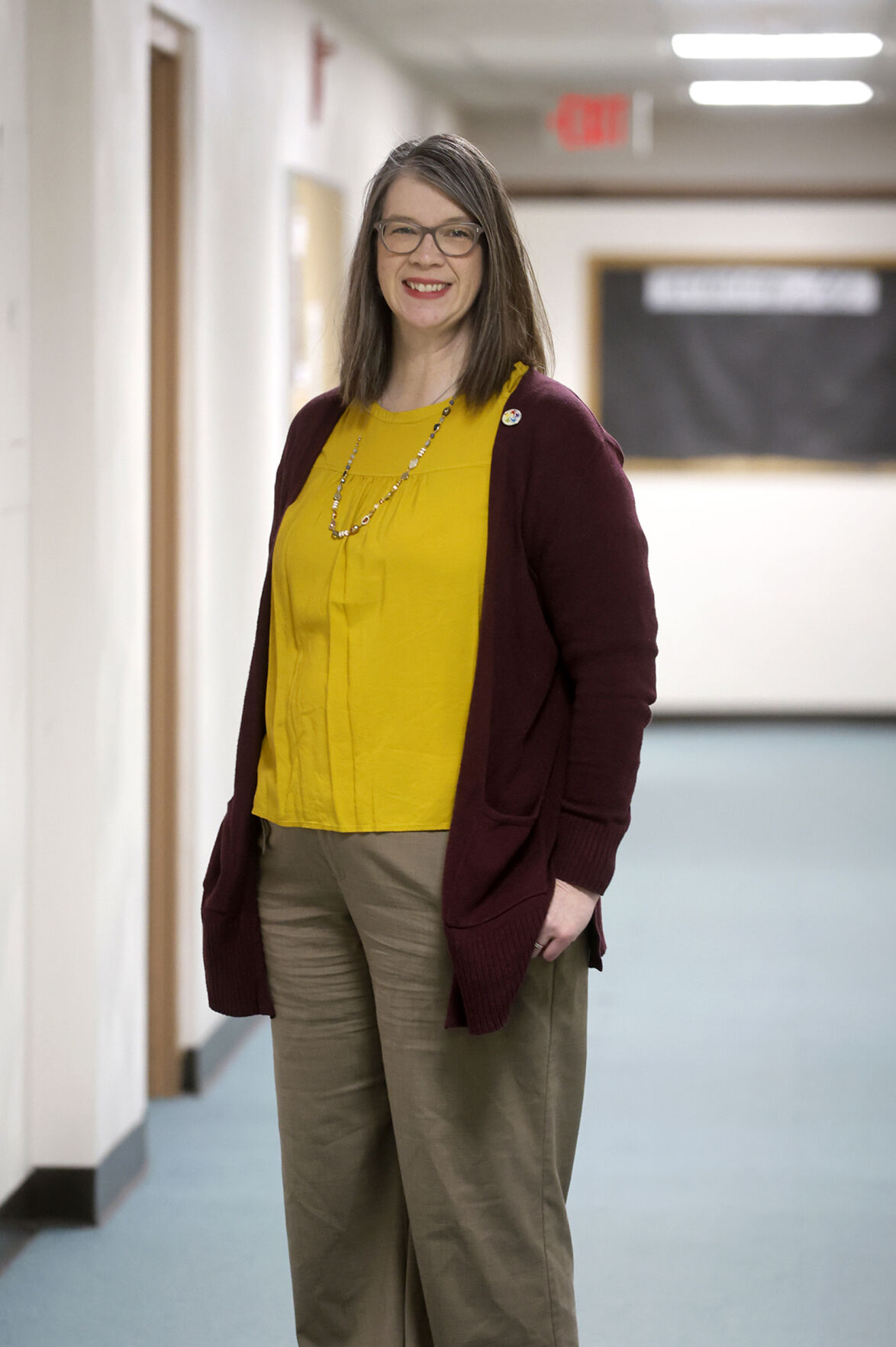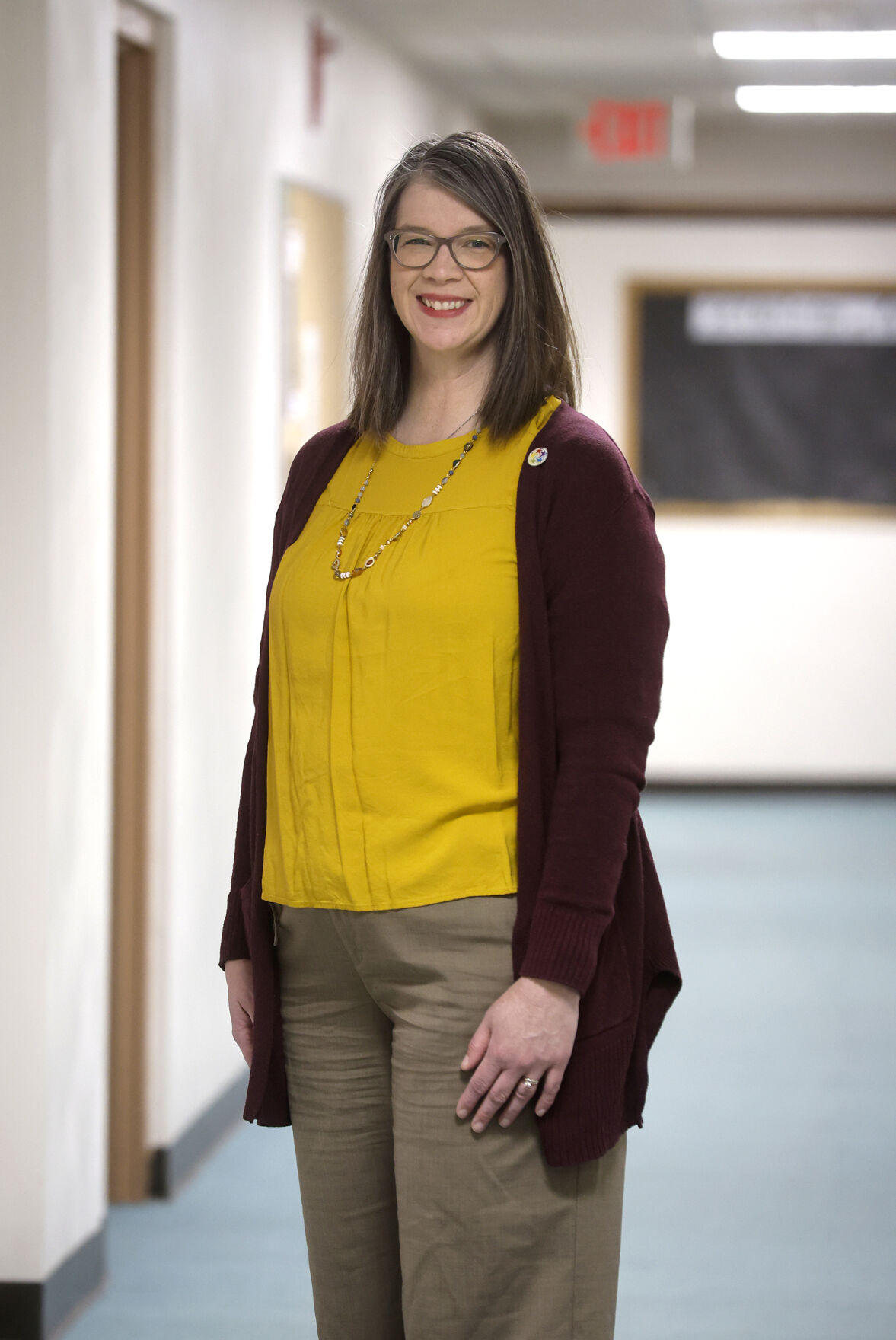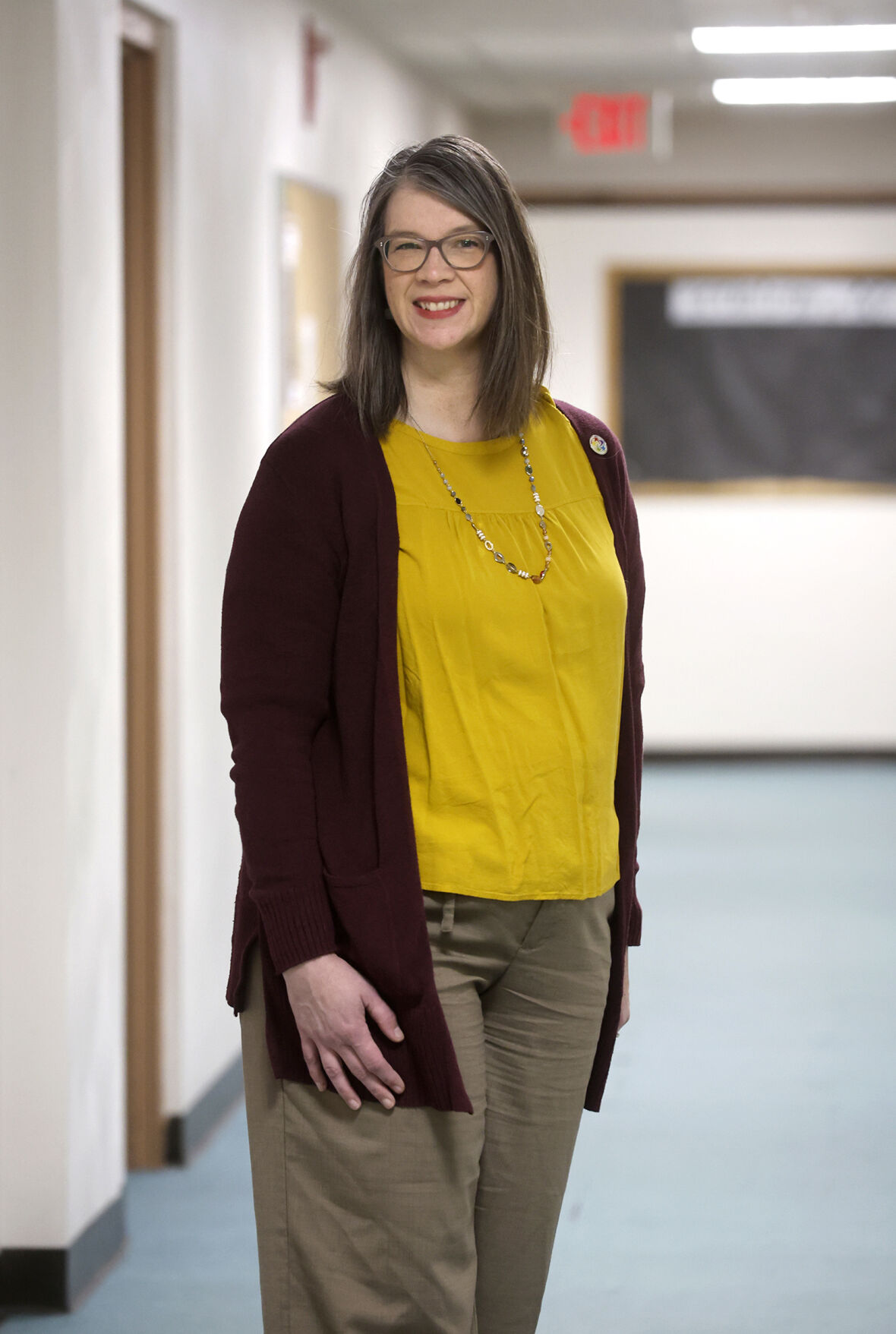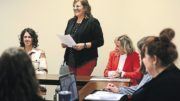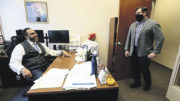Editor’s note: The monthly BizTimes feature Meet a Local Leader is getting a face-lift starting this month. We’re broadening the scope to include more than just business leaders. Anyone with an interesting perspective, a strong story or a potent effect in their field could be featured in the new Faces in Business. If you know someone who should be featured, email tony.frenzel@thmedia.com and megan.gloss@thmedia.com
Dr. Kate Parks, a Marshalltown, Iowa, native, moved to Dubuque in 2007. She attended Loras College as a first-generation college student, majoring in sociology, history and German.
After college, she lived in Feldkirch, Austria, as a Fulbright teaching assistant. When she returned to the U.S., she spent time working at various universities around the country as a residence hall director while pursuing a graduate degree.
She earned her Ph.D. in sociology from Texas A&M University in 2007, then returned to Loras to begin teaching undergraduate sociology, which she has continued for the past 15 years.
She met her husband in 2009, with whom she has two school-aged children who attend public school in Dubuque.
In addition to serving on the Dubuque Community School Board, she serves on the board of Oh Happy Play and previously was on the Dubuque Human Rights Commission.
Tell us about your field and what attracted you to it.
I’ve been proudly serving on the Dubuque Community School Board since December 2019. As an educator and a parent of school-age children who wanted to be more actively involved in the larger community, it made sense to me to run for the board. I have spent my career as a sociologist teaching about education and even conducting research on issues of inequity in education. Education is truly one of my greatest passions. I decided it was time to put my passion into action by stepping up to serve in this way.
How has your field changed in the time you’ve worked in it? How have you adapted?
I was sworn into service on the board in December 2019. Then a few months later, COVID-19 happened and completely changed the way that our district was operating, including the board. As a new board member, I expected that I would have a lot to learn in the first year or two about the expectations of the role, as well as about the district and the people within it. That all was made more difficult when everything shut down in March 2020.
When it was safe to do so, I spent time in the fall of 2020 meeting with the members of the superintendent’s cabinet to learn more about the crucial work they do. Eventually, it was also safe to start touring schools, which is always a highlight.
In the past year, the district also has gone through some other transformations as we welcomed a new school board member and a new superintendent and started discussions about consolidation and district facilities.
I’ve learned to expect the unexpected in this role, because while there is some predictability about the school year, the district team is addressing challenging situations all the time. When the focus stays on doing what is best for kids, it makes it easier to adapt to the challenges that arise.
Is there a person or people who have had a tremendous impact on you?
My parents had a big influence on me. Though they are now retired, they both worked in stressful and difficult jobs while I was growing up to ensure that our family had what we needed.
I know there were times when that was not easy and that they faced some real challenges, but they persevered. They gave me and my brothers quite a bit of independence, so that we learned how to solve problems, choose our own paths and to build self-reliance. They were supportive and encouraging along the way, but pushed us to make decisions for ourselves. They taught me what it means to work hard, stand up for what’s right and to have concern for others.
As a child, I really loved school, and according to my mom, talked about going to college while still in middle school, despite the fact neither my parents nor many people in my family had gone.
I believe I saw that as an option because of the encouragement of my parents, but also the impact of so many amazing teachers I had the good fortune to encounter. I’m still in touch with my high school German teacher, Herr Brinkmann, who was a mentor for me and helped me see my potential.
My time as a student at Loras College was also formative in helping me broaden my perspective and understanding of the world. The faculty I took courses with opened up the world and challenged me to think critically.
It is difficult to adequately articulate the immense impact that teachers had on my life. Their work with our students is so vital and supporting them is one of the reasons I decided to serve on the board.
Do you have any advice for young people and/or new graduates?
I think it is so important for young people to stay curious, be open to learning more and to find ways to make a positive impact on the world. Though I knew I wanted to teach, I wouldn’t have been able to predict that one day I’d be the president of the school board, let alone run for elected office.
Be open to possibilities. Pay attention to the world around you. Find the space where your passion meets the needs of the world.
Is there a story or an anecdote that illustrates your philosophy either in life or in your chosen field?
When I was in middle school, I was involved in a club called Future Problem Solvers. Teams of students were given a big issue, and we had to work together to research it. But more importantly, brainstorm solutions to the problem and come to a consensus about the right solution. We had to base our final solution on evidence and have well-reasoned arguments for why this was the best option.
I didn’t know then that much of what we were doing would be relevant to me as an adult. When facing challenges or issues today, I do my best to be well-informed on the issue. I consider and weigh multiple perspectives and work to get to a solution or a plan of action. I’m a person who is not content to sit on the sidelines complaining about the problem, but instead want to think about and engage in actions that will lead to improving the situation.
What have you found to be the most valuable resource for learning? Are you an on-the-job learner or do you prefer another way?
In my role as a school board member, I have learned so much from the people I work with, the larger community and our amazing staff. Conversations with teachers, administrators, students, fellow board members and folks in the community have been immensely valuable. I also have participated in various board trainings at the state level and I do quite a bit of reading about issues in education, both for my board knowledge but also to enhance my own teaching.
Math vs. creativity. People person vs. introvert. Slow and steady vs. quick and nimble. Where do you fall on those divides? Do you believe there even is a divide?
I like to think of all of these things as continuums, maybe because I mostly fit in the middle of many of them. As a social scientist, I tend to be more on the math and data side of things. In terms of social interactions, I’m somewhat in the middle but tend to be more of an extrovert than an introvert. When it comes to making decisions, I’ve worked to find the balance between being hasty and being overly deliberative. Overall, I think I try to have a measured perspective on things and my background and training help me to consider issues or arguments from many sides.
When you think of the future, what kind of changes would you like to see in your field? In the broader world?
This is a challenging time for education in our state and even nationally. I believe that public education is the bedrock of our democracy and in so many ways the strength of our community. When I interact with our students, I’m always impressed and amazed by their talents, passions, insights and determination. When I spend time with our teachers and staff, I’m always in awe of their dedication to helping each of our students thrive. The work they are doing for our kids is so important and the impact they make on our learners is immense. Investing in our students is an investment in the future we want to see.
How has your professional life helped you grow as a person?
This work has at times been incredibly stressful, but it is far more rewarding than I ever could have anticipated. I’m so grateful for the people I’ve met already in my service on the board and the positive impact that we are focused on for all our students. I have been personally enriched through all the new connections I’ve made in the community from this role. It has also helped me be a better teacher for my students, as well as a role model for my kids.
How do you strike a work/life balance?
As a working mom of two in this role, it’s not always easy and some weeks are better than others. I’d like to tell your readers that I have an amazing system that is fine-tuned and reliable, but that’s just not the case.
I do my best to make sure that when I’m home, we get time together that is undistracted by work and when I’m doing the work, whether in my professor role or on the board, that the focus is on that.
I try to avoid multiple nights of evening meetings in a week if I can so that I have time with my family at home. There are times when that doesn’t happen, but for the most part, I’ve been able to make that work.
I think it is valuable for our kids to see their mom in this role to plant the seeds for them that they can and should serve others or serve their community someday.


